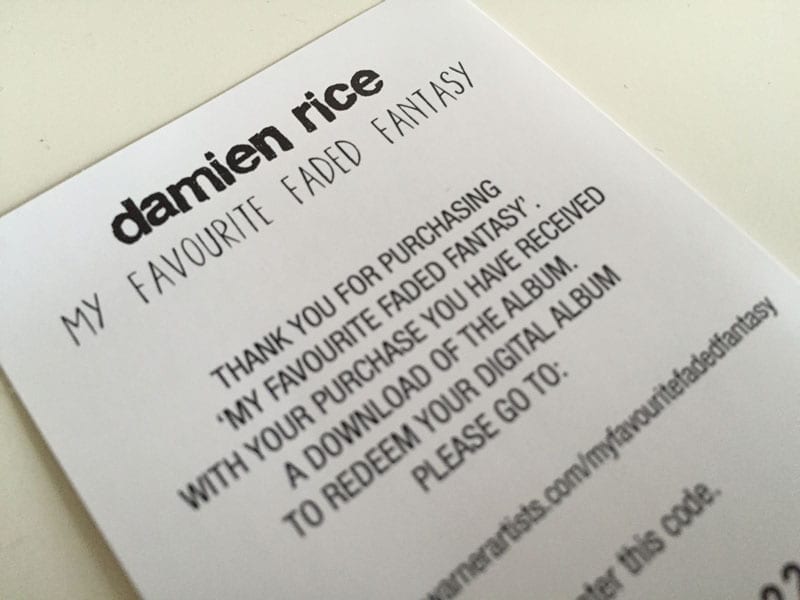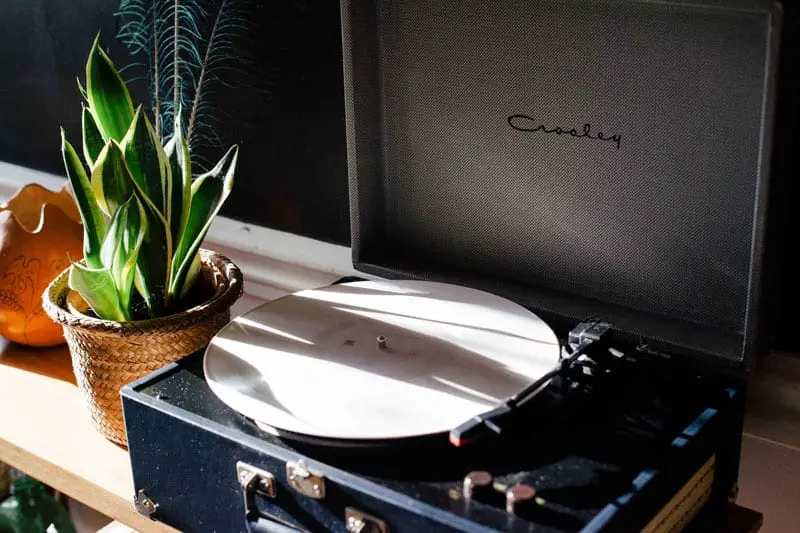The CD is dead – God rest its soul; long live the vinyl record.
It’s an outcome that few would have predicted as CD’s became widely available through the 1980’s, but it appears that if current trends continue, vinyl could indeed outlive CD. Let’s take a look at some of the numbers:

Last year, digital streaming was up 54% while total album sales – be it digital or physical – were down 11% on 2013 figures. Either way you look at it, all the figures point toward a market where consumers view music as something they access, rather than a product they own. Sounds sad, doesn’t it?
It isn’t all bad news for lovers of physical products, though, as vinyl sales grew by 52% in 2014. So although vinyl still only accounts for 6% of all physical album sales, it would appear that for a small but dedicated and passionate audience, vinyl is fast becoming the only physical format worth owning – and here’s why:
1. Vinyl is the ultimate tangible listening format
As the age of digital streaming renders the CD obsolete, a growing number of listeners are left yearning for a physical product. Despite the convenience of digital and all its added advantages from easy access to greater portability, it would seem that people still feel the need to own something. As Alice Cooper recently put it ‘Kids these days are tired of buying air’.
The rock legend also goes on to make a further claim, stating ‘kids are rebelling against the technology thing’, and there’s some merit to this, but I’m not convinced.
Now, I love vinyl, but I also fully embrace the convenience of digital. But when it comes to owning a physical copy of the album, CD’s just can’t compare to vinyl. Everything from the artwork to the added character of occasional surface noise makes vinyl the ultimate tangible music experience. I even love having to turn the record over!
2. They come with a download anyway
As touched on above, nobody is arguing against the convenience of digital – you can’t take vinyl with you on the daily commute. But when the overwhelming majority of new vinyl records come with a digital copy included, why would you even contemplate buying a CD?

3. Most CD’s get ripped and left on the shelf
Cast your mind back to the last CD you purchased. Think about what you did, and how many times you’ve actually played the original disc. The chances are, you ripped that bad boy to iTunes and haven’t used it since. Let’s face it, most CD’s are simply collecting dust.

4. The mastering is better (sometimes)
Some readers will be aware of the infamous loudness war; a phenomenon that has seen music industry executives push the boundaries of volume to extremes through a process known as brickwall limiting. In basic terms, this technique allows mastering engineers to raise the perceived volume level of a track without pushing beyond the limits of digital audio at 0dB. On the one hand limiting can be used to enhance a track; on the other hand it can also severely compromise the sound quality when taken to extremes.
Unfortunately, limiters are pushed to extremes all too often, with some of the most famous examples including the Red Hot Chili Peppers Californication, and Metallica’s Death Magnetic.
Sometimes – but not always – the vinyl is mastered separately, with greater dynamic range, and subsequently, the vinyl sounds better. The very fact that a vinyl copy of the same album could have greater dynamic range is actually pretty ironic, considering CD’s superior dynamic range specs (96dB for CD vs 60dB for vinyl), but it happens – quite a lot.
Be careful though, as some releases use the same mastering for vinyl and CD – resulting in no benefit to buying a vinyl copy, other than perhaps aesthetics. Let’s take the Red Hot Chili Peppers Californication as an example again. There are two vinyl copies of this out on the market: 1 has been purposefully remastered for vinyl and has audibly better dynamic range, the second is a cheaper, earlier release, which is the same brickwalled CD master pressed to vinyl. A blatant rip-off tactic if you ask me.


The dr.loudnesswar dynamic range database goes someway toward giving users a guideline of which release has the best dynamic range, but the best way is to listen and determine for yourself. There is no doubt, however, that the trend toward greater dynamic range on some vinyl releases is only feeding the concept of vinyl being the only physical copy worth owning.
5. Vinyl demands listening attention
Last but not least; there’s just something about vinyl that demands respect. The whole way in which the format works encourages you to enjoy an album from start to finish – just how the artist intended. Vinyl isn’t a perfect format, and anyone that suggests otherwise is seriously deluding themselves. What it does offer, though, is a romance around music that’s pretty difficult to beat. I’ve used this quote before, and I’ll use it again: ‘There’s no romance in singing about an iPod’ – Jack White




[…] I could go on. You could include the cult album “Unknown Pleasures” by Joy Division as another example, which also ends with a locked groove playing the sound of breaking glass repeatedly until the tonearm is lifted. There are countless other examples, and I encourage you to share your favorite locked groove examples in the comments below. Arguably, no other musical format leaves so much to the creative imagination in realizing an exciting and collectible product. What strikes me most is how the novelty hasn’t worn off; yes, a lot of examples are from the 60s and early 70s when psychedelia was at its peak, but there are plenty of contemporary examples to match. That’s the beauty of making vinyl records; there is always another angle and a new way to use old techniques to express the artist’s creativity. Vinyl is the ultimate physical format. […]
i am just now getting back into vinyl and I’m absolutely loving it. Loving the sound and getting physically involved in the process that listening to vinyl entails. For me it is a much richer and warm sound. I am cleaning my vinyl with a Vinyl Stack record kit and an ultrasonic cleaner so the sound is as good as it gets. Long live vinyl!!!!
Cd’s are actually the only format worth owning. Streaming does not work for me, I want complete control over the listening experience. Vinyl has too many issues. Availability of good vinyl, price, and maintenance. Vinyl degrades each time you play it. It also is compressed to meet standards such as not having the needle jump out of the groove. The high end is the first thing to ware on a record. The noise is distracting, especially for classical and jazz records. Listening to subtle passages in say “Blue in Green” by Miles Davis, or the dynamics in a symphony are a nightmare with vinyl. I don’t like any distractions. Cd’s give you a full dynamic range with rich bass and crystal clear highs. Having to get up and clean a record just to hear the other side is not charming, it’s a pain. Any lossy format is totally out with me. There is a noticeable difference on home hi-fi’s. So forget Itunes and any other like service. Also if I am paying I want a product, not just access to someone’s files. As a musician I understand the attraction of analog. Cd’s actually sound good at lower volumes and they will sound the same every time you play them. Digital recordings and playback have corrected so many issues with music playback. It’s ironic that Cd’s are on the way out just when they are truly starting to sound absolutely amazing. Listening to recent remasters like The Beatles brings it home. I have Parlaphone copies of these records and the vinyl just can’t compete. I think the main attraction of vinyl is for people who never experienced it growing up. Cd’s are a blessing to music lovers in so many ways. They are absolutely quiet, have great dynamic range, deep bass, crystal clarity, and long convenient playing times. What’s the problem with that?
Ripping CD and listen to music only from computer or mp3 player? What a joke…
The only objective truth is: neither from CD or vinyl is better. the rest is the subjective… choice you make.
DR scale is not a proof. It all depends on the master. If you want to start on one medium being superior using numbers then the CD has actually a better dynamic range than the vinyl (around 96dB for a CD, 120dB for SACD against 60/75dB for a vinyl). But in the end both CDs and vinyl make it. You just prefer one or the other.